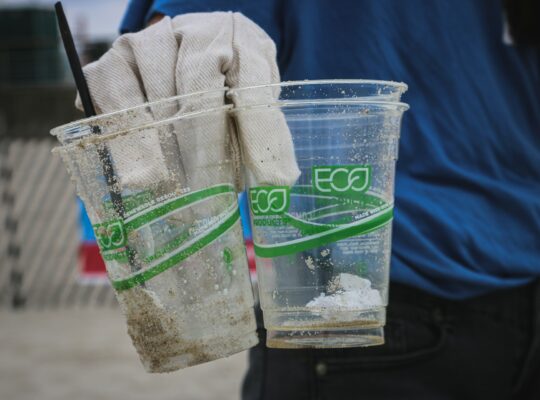For Kenyan farmers, organic fertilizer bokashi brings the land back to life
Kenya’s agricultural sector confronts a complex array of hurdles, including declining soil fertility, recurrent droughts, and the prohibitive expenses associated with chemical fertilizers. Within this challenging context, Bokashi emerges as a promising sustainable solution, offering Kenyan farmers a pathway to enhance soil quality, mitigate the impacts of drought, and attain economic empowerment.
Decades of reliance on chemical fertilizers have damaged Kenya’s soil health. Farmers have experienced a diminishment in fertility, which has jeopardized long-term agricultural productivity. The consequences of this historical dependence are evident across the country, with farmers grappling with diminished yields and degraded land.
Adding to these challenges is the escalating threat of drought, exacerbated by climate change. Kenya’s farmers are on the frontlines of this battle, contending with erratic rainfall patterns and dwindling water sources. In the face of these adversities, smallholder farmers bear the brunt of the burden, with the high costs of commercially produced fertilizers further straining their limited resources.
In regions such as Tharaka Nithi County, the agricultural challenges are especially evident to farmers who rely on the land for sustenance as they experience the impacts of declining soil fertility and unpredictable weather patterns.The implications are profound for smallholder farmers who depend on these crops for their daily sustenance and income. They threaten not only their economic stability but also their very way of life.
The Solution: Bokashi
Bokashi—a centuries-old Japanese practice—has emerged as a beacon of hope for Kenyan farmers grappling with agricultural challenges. Unlike chemical fertilizers that deplete soil nutrients and harm the environment, Bokashi offers a natural and sustainable alternative, utilizing locally available materials such as manure, rice husks, and charcoal dust.
The beauty of Bokashi lies in its simplicity and accessibility. With just a few basic ingredients and a little know-how, farmers can create their own Bokashi fertilizer right at home. The process begins by collecting organic matter—such as food scraps, crop residues, and animal waste—and placing it in an airtight container. This container is then sealed to create an anaerobic environment essential for fermentation.
As the organic matter decomposes, beneficial microbes break down complex compounds into simpler forms that plants can readily absorb. This fermentation process enriches the soil with essential nutrients and improves its structure and water retention capabilities. The result is healthier, more fertile soil that is better equipped to support thriving crops.
What sets Bokashi apart from chemical fertilizers is its affordability and sustainability. Unlike expensive commercial fertilizers that strain farmers’ budgets, Bokashi can be produced at minimal cost using materials readily available on farms or in local communities. This makes it a game-changer for smallholder farmers, who often operate on tight budgets and limited resources.
Moreover, Bokashi offers a holistic approach to soil fertility management. By harnessing the power of beneficial microbes, Bokashi delivers essential nutrients to plants and improves overall soil health. This means healthier crops, higher yields, and reduced reliance on external inputs—a win-win for both farmers and the environment.
By promoting sustainable agriculture practices, Bokashi contributes to broader environmental conservation efforts, including soil conservation and biodiversity preservation. Additionally, the use of organic fertilizers like Bokashi can lead to cleaner waterways and reduced pollution, safeguarding ecosystems and public health.
Bokashi fertilizer offers a glimmer of hope for Kenya’s agricultural sector. Its potential to improve soil health, combat drought, and empower farmers underscores its importance in shaping the future of Kenyan agriculture. As we look ahead, the wider adoption of Bokashi holds promise for sustainable agricultural development and resilience in the face of environmental uncertainties.










